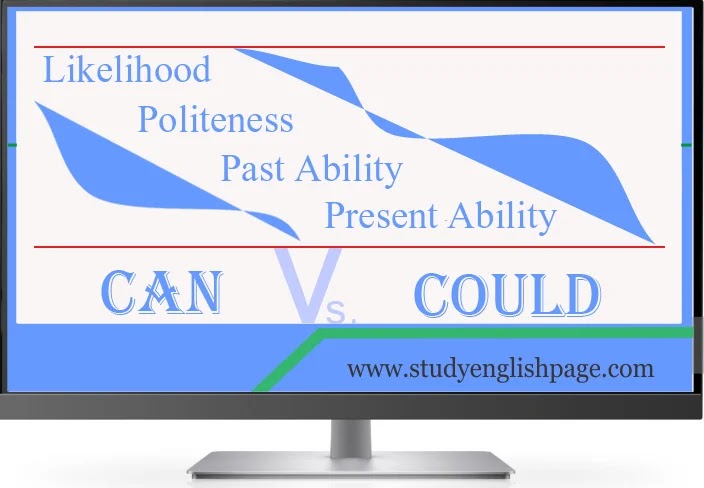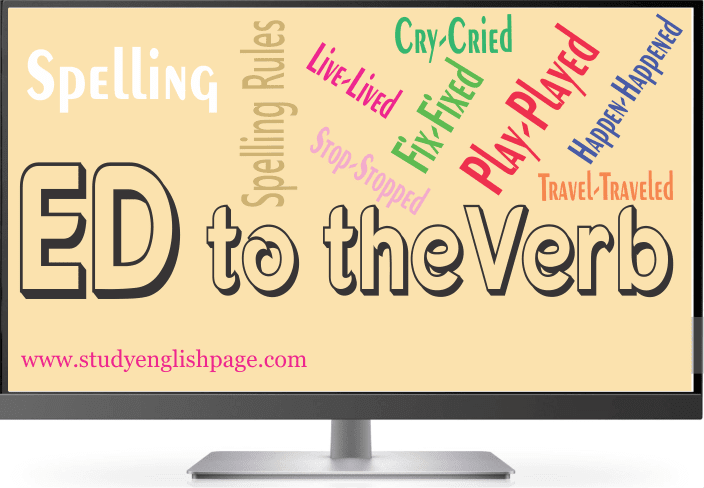Can vs. Could
Can vs. Could
The words “can and could” seem the same, and many people may use them interchangeably. Yes, they are almost the same, but we don’t always use these words interchangeably. Let’s discuss the topic of “can vs. could” in detail. You can also visit our site Study English Page for other grammatical topics.
Can
In English grammar, the word “can” is a modal verb that is also called a modal auxiliary. It has different uses. We use it for ability, permission, possibility, offering help, request, prohibition, and opportunity.
- John can speak Arabic, but he cannot speak French.
- They have practiced well. They can win the match.
Could
Could is used in English grammar, and we use it for ability, permission, possibility, offering help, request, and suggestion.
- I could drive at night when my eyesight was good.
- Could you please close the door?
The Difference Between Can and Could
Differences
Can vs. Could (for permission)
There is a slight difference between can and could when we use them for permission. We use could to give or take permission politely and formally. We use can to give or take permission in a casual way.
- Could I leave the window open?
- Yes, you could leave the window open.
Can vs. Could (for possibility)
“Can and could” are used for scenarios that are likely to happen. If a scenario is more likely to happen, we use can. Could is used when a scenario has chances of happening as well as not happening.
- It is snowing now; the weather can be very cold tomorrow.
- There will be different competitions. John could win the race.
Can vs. Could (for ability)
Can and could are used for ability, but there is a difference. The modal verb can is used for present ability and could for past ability. When someone is able to do something, he can use the modal verb “can” to show ability. Similarly, one uses the modal verb “could” for an activity he was able to do in the past but not able to do in the present.
Present Ability
- John has a great personality; he can manage your school.
- Our students can speak English, but they are a little bit weak in writing.
Past Ability
- He is weak enough now. He could play well in his era.
- I could meet her in New York because I was in New York last year.
Can vs. Could (prohibition)
When we talk about prohibition, there is a difference between can and could. We can use the negative form of “can” for prohibition. On the other hand, we don’t use “could” for prohibition. You may see could for prohibition in some cases, but that is used rarely.
- You cannot fly a drone in some areas.
- John told me that his son cannot join your company.
The above are the main differences between can and could. We use these two modal verbs for offering help and request interchangeably. Remember that can is typically used for an opportunity and could for a suggestion.
- Can we come to help you people?
- Could you please send my documents by post?
- You could take his help to practice for your test.
- The situation has now changed, and I can do something better.
Can vs. Could Examples
Examples of Can
- He can support you.
- Can you give her a helping hand?
- How can I help them in these days?
- They can control the situation because they have expertise.
- If it is too hot, they can call John who will take them to their home.
Examples of Could
- I could lift 80kg weight at that time.
- If I left on time, I could reach on time.
- She could search for a new job for herself.
- Could you please bring my laptop that is in my office?
- Lisa has studied for the test; she could get 1st position.
FAQs on Can vs. Could
Can we use can and could interchangeably?
Sometimes, we can use can and could interchangeably but not always.
Do we use could as the past form of can?
When we talk about ability, we use could as the past form of can to show past ability.
Is there any difference between can and could?
We cannot always use the words “can and could” interchangeably. There are differences when they are used for ability, possibility, permission, and prohibition.
Related Topics:




Comments
Post a Comment